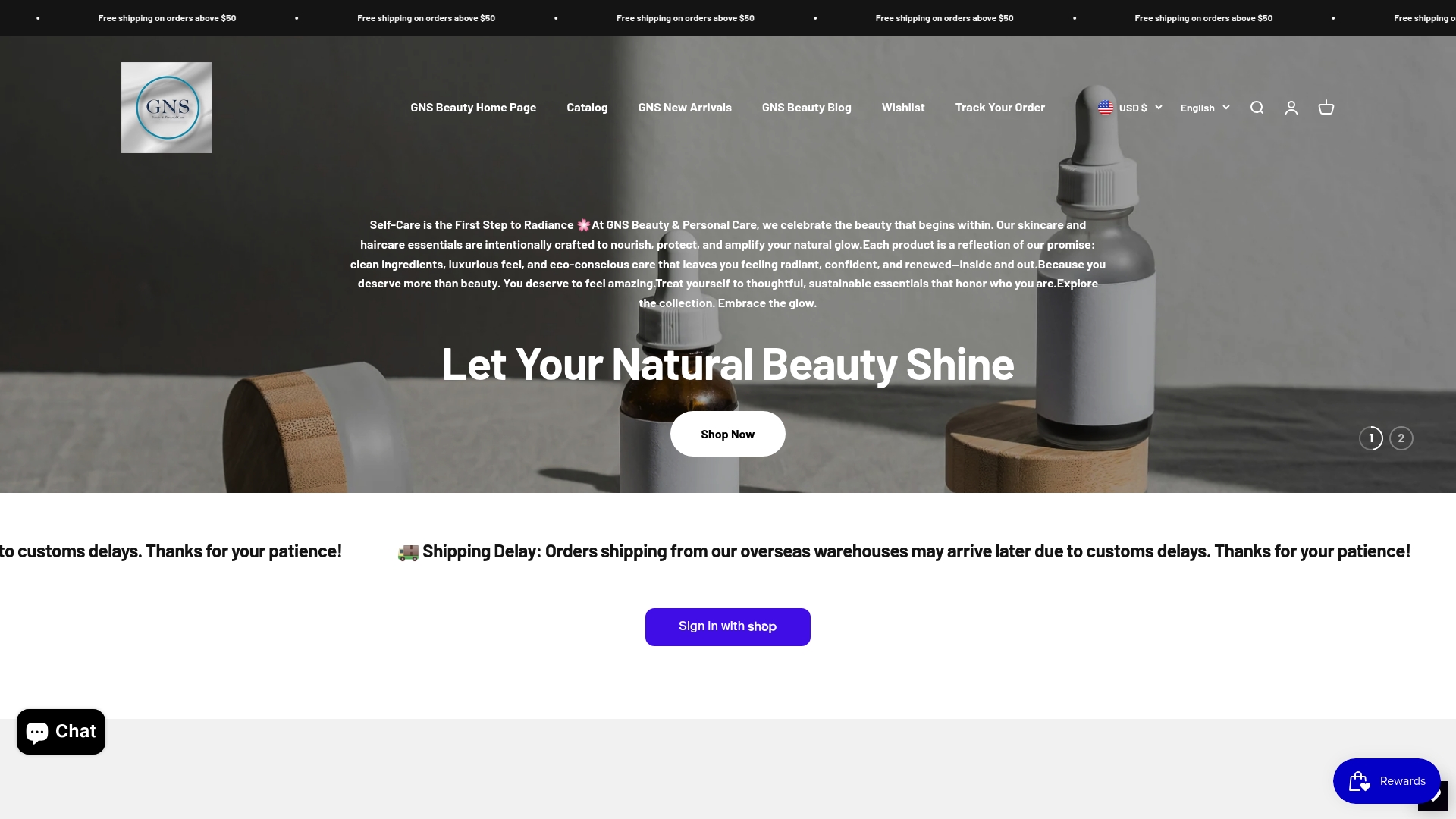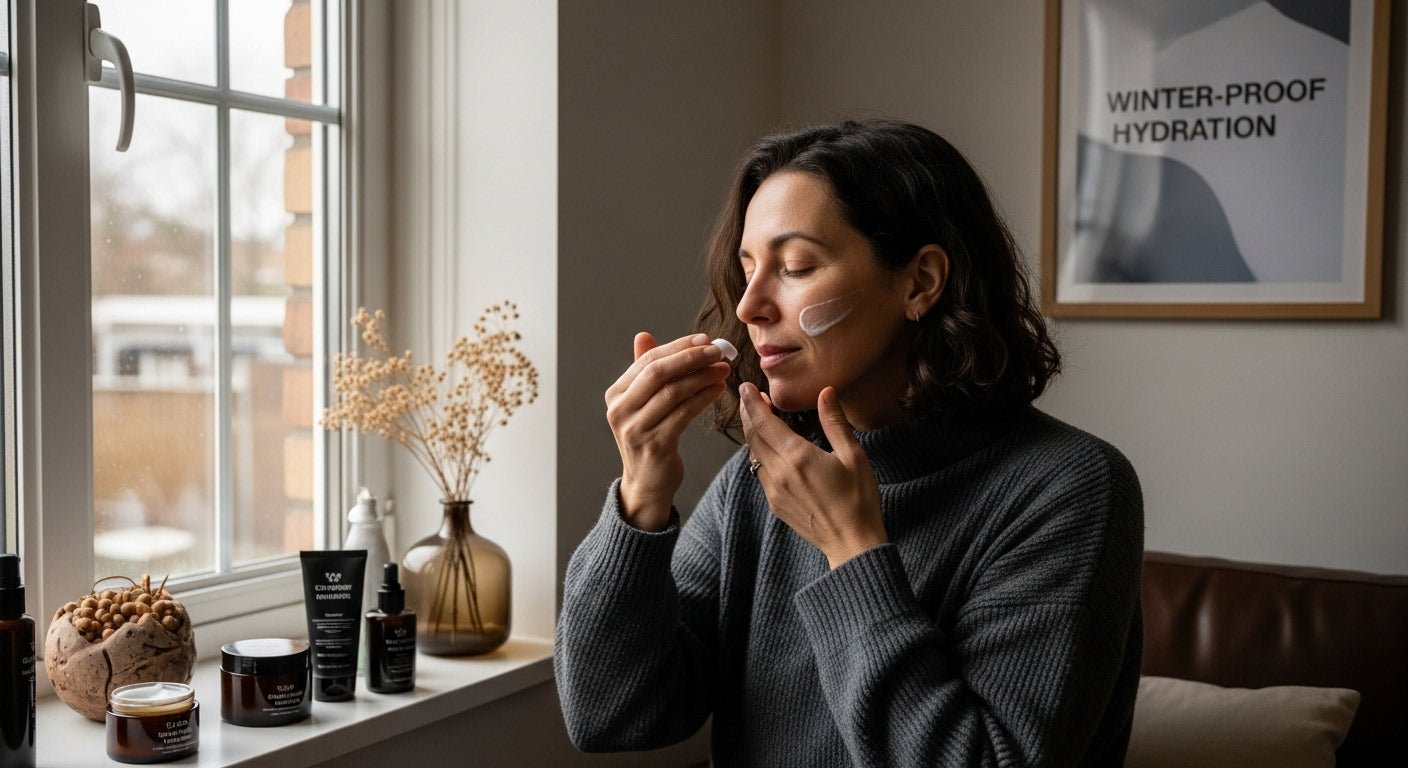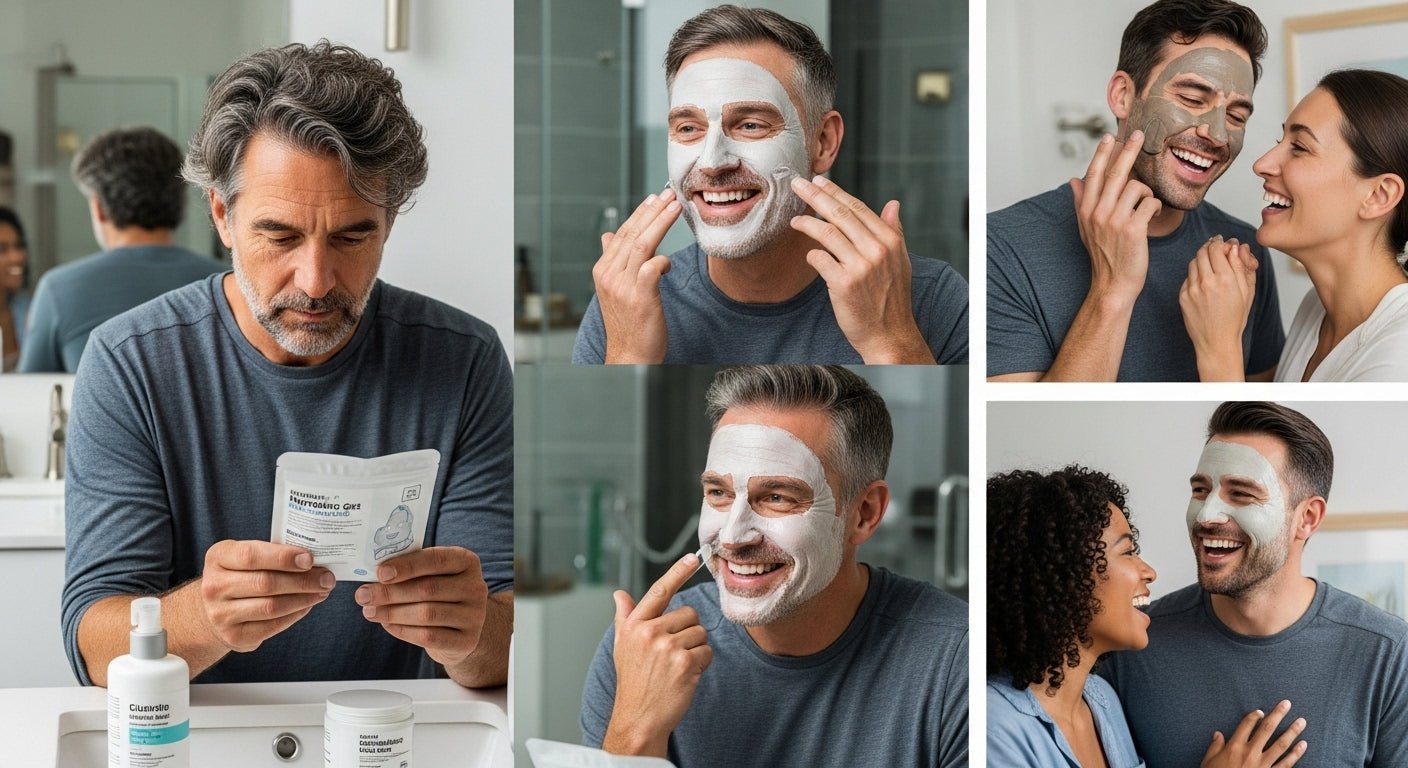Dry skin often seems like just a minor annoyance and yet it actually affects millions of people worldwide and can lead to far more than just irritation. Most people are surprised to learn that a compromised skin barrier allows not only moisture to escape, but also lets bacteria and irritants in, leading to real health issues. The real shock is that something as simple as winter air or a hot shower could set off a spiral that leaves skin damaged for months if left unaddressed.
Table of Contents
- Understanding Dry Skin: Causes And Consequences
- The Importance Of Proper Hydration For Skin Health
- Key Ingredients For Winter-Proof Hydration
- How Climate And Lifestyle Impact Skin Moisture
- Creating A Sustainable Skincare Routine For All Skin Types
Quick Summary
| Takeaway | Explanation |
|---|---|
| Maintain skin moisture balance | A healthy moisture balance supports skin barrier function and prevents dryness. |
| Hydrate internally for skin health | Drinking water is essential, but nutrition also plays a vital role in skin hydration. |
| Utilize effective hydrating ingredients | Ingredients like hyaluronic acid, glycerin, and ceramides are crucial for winter skin care. |
| Adopt a personalized skincare routine | Customize your skincare routine according to your skin type and seasonal changes. |
| Consider lifestyle factors affecting moisture | Diet, sleep, and exercise significantly impact your skin’s hydration ability. |
Understanding Dry Skin: Causes and Consequences
Dry skin is a widespread condition that affects millions of people worldwide, causing discomfort, irritation, and potential long-term skin health challenges. Understanding the underlying mechanisms of skin dehydration is crucial for developing effective prevention and treatment strategies.
The Biological Mechanism of Skin Moisture
Skin moisture depends on a delicate balance of natural oils and water retention. The outermost layer of skin, called the stratum corneum, acts like a protective barrier that prevents water loss and shields against environmental stressors. When this barrier becomes compromised, skin loses its ability to retain moisture, leading to dryness, flakiness, and potential inflammation.
According to Mayo Clinic, several key factors contribute to skin dehydration:
- Environmental Conditions: Cold, low-humidity climates and indoor heating systems dramatically reduce skin moisture
- Personal Habits: Frequent hot showers, harsh soaps, and excessive washing can strip natural skin oils
- Physiological Changes: Aging reduces natural oil production, making skin more susceptible to dryness
Potential Health Consequences of Chronic Dry Skin
Chronic dry skin is more than a cosmetic concern. Persistent dehydration can lead to serious dermatological issues:
- Increased risk of skin infections due to compromised protective barrier
- Accelerated skin aging and reduced elasticity
- Potential development of painful skin conditions like eczema or dermatitis
Research from Johns Hopkins Medicine emphasizes that untreated dry skin can create microscopic cracks in the skin’s surface, allowing bacteria and irritants to penetrate more easily. This vulnerability can trigger inflammatory responses and potentially compromise overall skin health.
Understanding these complex interactions between environmental factors, personal care practices, and skin biology is the first step toward developing a comprehensive approach to maintaining healthy, hydrated skin.
The Importance of Proper Hydration for Skin Health
Hydration is a fundamental aspect of maintaining healthy, resilient skin. While many people focus on topical treatments, true skin health begins from within, involving complex interactions between nutrition, lifestyle, and cellular processes.
Internal Hydration and Skin Physiology
Skin hydration extends far beyond simply drinking water. It involves a sophisticated network of biological mechanisms that regulate moisture retention, cellular function, and overall skin integrity. The body uses multiple pathways to distribute and maintain moisture, with water serving as a critical transport mechanism for nutrients and waste removal.
Research from National Institutes of Health reveals fascinating insights into how internal hydration influences skin health:
- Cellular Regeneration: Proper hydration supports faster cell turnover and repair mechanisms
- Nutrient Transportation: Water enables efficient delivery of essential vitamins and minerals
- Toxin Elimination: Adequate hydration helps flush out cellular waste and environmental toxins
Nutritional Strategies for Enhanced Skin Hydration
Hydration is not solely about water intake. Comprehensive skin moisture requires a holistic approach that integrates dietary nutrients, lifestyle choices, and targeted supplementation. Key nutritional components play crucial roles in maintaining skin hydration:
- Omega-3 fatty acids help strengthen the skin’s lipid barrier
- Hyaluronic acid supports moisture retention at the cellular level
- Vitamins E, B6, and C contribute to skin elasticity and resilience
The complex relationship between nutrition and skin health demonstrates that hydration is a multifaceted process. It requires a balanced approach that considers internal biological mechanisms, dietary intake, and environmental factors. By understanding these intricate connections, individuals can develop more effective strategies for maintaining optimal skin moisture and overall dermatological wellness.
Key Ingredients for Winter-Proof Hydration
Winter skin hydration requires a strategic approach that goes beyond basic moisturizing. Understanding the specific ingredients that protect, restore, and maintain skin moisture becomes crucial in combating harsh seasonal conditions.
The Science of Skin Protection Ingredients
Skin hydration during winter involves a complex interplay of ingredients designed to create a protective barrier, attract moisture, and prevent water loss. Each ingredient plays a unique role in maintaining skin health and resilience against environmental stressors.
According to Dermatology Research, effective winter hydration ingredients can be categorized into three primary functional groups
 :
:
- Humectants: Attract and bind water molecules to the skin
- Emollients: Smooth and soften skin surfaces
- Occlusives: Create a protective barrier to prevent moisture loss
Critical Hydration Ingredients for Winter Skin Care
Certain ingredients stand out for their exceptional ability to combat winter skin challenges. Hyaluronic acid serves as a powerful hydration magnet, capable of holding up to 1000 times its weight in water. Ceramides, natural lipids found in skin cells, help rebuild and maintain the protective skin barrier, preventing moisture escape and protecting against environmental damage.
Key winter-proof hydration ingredients include:
- Glycerin: A superior humectant that draws moisture into the skin
- Panthenol: Supports skin healing and moisture retention
- Squalane: Provides lightweight, non-greasy hydration
The strategic combination of these ingredients creates a comprehensive defense against winter’s drying effects, ensuring skin remains supple, protected, and radiant throughout the coldest months.
To clarify the different roles ingredients play in winter skin hydration, the table below categorizes key ingredients and highlights their main functions.
| Ingredient Type | Example Ingredients | Main Function |
|---|---|---|
| Humectants | Hyaluronic acid, Glycerin | Attract and bind water to the skin |
| Emollients | Squalane, Panthenol | Smooth and soften skin, improve texture |
| Occlusives | Ceramides | Create a barrier to prevent moisture loss |
By understanding the science behind these ingredients, individuals can develop targeted skincare approaches that go beyond surface-level moisture and address fundamental skin health.
How Climate and Lifestyle Impact Skin Moisture
Skin hydration is a dynamic process influenced by numerous external and internal factors. Climate and lifestyle represent two powerful forces that significantly shape the skin’s ability to retain moisture, adapt to environmental challenges, and maintain optimal health.
Environmental Factors and Skin Barrier Function
Climate plays a critical role in determining skin moisture levels. Extreme environmental conditions create unique challenges for skin health, with temperature, humidity, and air quality directly affecting the skin’s protective barrier. Cold, dry winter environments and heated indoor spaces can rapidly deplete skin moisture, causing increased vulnerability and potential damage.
According to Dermatological Research, low humidity and temperature significantly decrease skin barrier function, making skin more susceptible to:
- Mechanical stress: Increased skin fragility
- Irritant sensitivity: Higher reactivity to external substances
- Moisture loss: Accelerated dehydration processes
Lifestyle Influences on Skin Hydration
Beyond environmental factors, personal lifestyle choices profoundly impact skin moisture. Nutrition, physical activity, stress levels, and sleep patterns contribute to the skin’s overall hydration and resilience. Consistent hydration, balanced nutrition, and regular exercise can enhance the skin’s natural moisture retention mechanisms.
Key lifestyle factors affecting skin moisture include:
- Dietary habits: Consuming water-rich foods and staying hydrated
- Physical activity: Regular exercise improves circulation and skin health
- Sleep quality: Adequate rest supports cellular regeneration
Understanding the intricate relationship between climate, lifestyle, and skin moisture empowers individuals to develop comprehensive strategies for maintaining healthy, resilient skin across varying environmental conditions.
This table summarizes the primary environmental and lifestyle factors that influence skin moisture, along with their impact on overall skin hydration.
| Factor Category | Specific Factor | Effect on Skin Moisture |
|---|---|---|
| Environmental | Cold temperatures | Decreases skin moisture, increases dryness |
| Environmental | Low humidity | Enhances water loss from skin |
| Environmental | Indoor heating | Dries out skin by reducing air moisture |
| Lifestyle | Hot showers | Strips natural oils, causes dehydration |
| Lifestyle | Poor nutrition | Reduces skin’s ability to retain moisture |
| Lifestyle | Lack of sleep | Impairs skin repair and moisture retention |
Creating a Sustainable Skincare Routine for All Skin Types
A sustainable skincare routine transcends generic recommendations, requiring a personalized approach that adapts to individual skin characteristics, environmental conditions, and holistic wellness principles. Understanding the unique needs of different skin types is fundamental to developing an effective, long-term skincare strategy.
Understanding Personalized Skin Needs
Skin is a dynamic organ that requires nuanced care. No single approach works universally, making it crucial to recognize the distinct requirements of various skin types. Factors such as genetics, hormonal balance, environmental exposure, and lifestyle significantly influence skin health and hydration needs.
According to UCLA Health, developing a sustainable routine involves:
- Adaptive Strategies: Modifying skincare approaches with seasonal changes
- Gentle Interventions: Using mild products that support natural skin functions
- Consistent Care: Maintaining regular, thoughtful skincare practices
Holistic Skincare Principles
A truly sustainable skincare routine extends beyond topical treatments. It encompasses a comprehensive approach that integrates nutrition, hydration, protection, and mindful product selection. Eco-conscious choices and understanding ingredient interactions become paramount in creating a routine that supports both personal and environmental wellness.
Key considerations for a sustainable skincare approach include:
- Selecting products with minimal, natural ingredients
- Choosing brands committed to ethical and environmentally friendly practices
- Prioritizing skin barrier health through balanced, non-invasive interventions
By embracing a holistic, personalized approach, individuals can develop skincare routines that not only address immediate concerns but also support long-term skin health and environmental sustainability.

Discover Real Solutions for Winter Dry Skin at GNS Beauty
Struggling with dry, uncomfortable skin as winter intensifies? You are not alone. The article outlines how environmental stress, lifestyle, and a weakened skin barrier can leave your skin feeling parched and prone to redness or irritation. If traditional moisturizers are not giving you results or your skin feels tight and vulnerable, now is the time to upgrade your routine and protect your skin’s natural resilience. GNS Beauty & Personal Care offers advanced hydration essentials with skin-loving ingredients like hyaluronic acid, ceramides, and glycerin—so you can say goodbye to flakiness and hello to lasting nourishment.

Experience the difference sustainable, science-backed skincare can make for your winter routine. Explore the hand-selected premium products at GNS Beauty & Personal Care for proven formulas that build a stronger, healthier skin barrier. Shop now to transform your winter dryness and renew your skin’s glow—because your best skin should not wait. Take your first step toward radiant hydration at https://gnsbeauty.com/.
Frequently Asked Questions
What are the main causes of dry skin in winter?
Dry skin in winter can be caused by cold temperatures, low humidity, and indoor heating, which all reduce skin moisture. Additionally, personal habits such as hot showers and harsh soaps can strip natural skin oils, leading to dehydration.
How can I enhance my skin’s hydration with nutrition?
To enhance skin hydration through nutrition, focus on incorporating omega-3 fatty acids, vitamins E, B6, and C, and hyaluronic acid into your diet. These nutrients support moisture retention and overall skin health.
What are the best types of ingredients to look for in winter moisturizers?
When looking for winter moisturizers, opt for those containing humectants like glycerin, emollients such as squalane, and occlusives like ceramides. These ingredients help attract moisture, smooth skin, and create protective barriers to prevent water loss.
How can I create a sustainable skincare routine for dry skin?
To create a sustainable skincare routine for dry skin, tailor your regimen to your specific skin type and needs. Incorporate gentle, natural products, focus on hydration, and adapt your routine seasonally. Prioritize hydration from within through proper diet and hydration, and choose eco-conscious brands.







Leave a comment
All comments are moderated before being published.
This site is protected by hCaptcha and the hCaptcha Privacy Policy and Terms of Service apply.